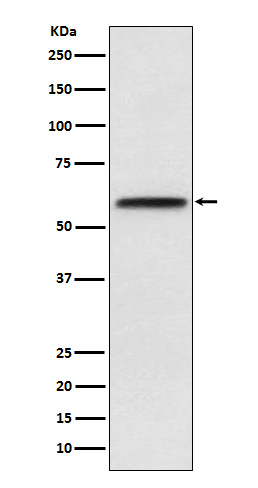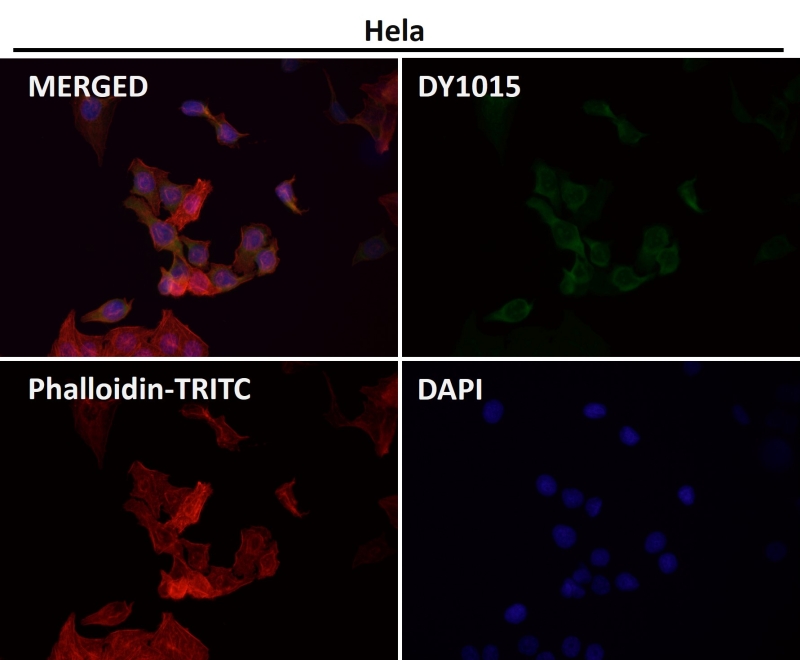


| WB | 咨询技术 | Human,Mouse,Rat |
| IF | 1/20-1/50 | Human,Mouse,Rat |
| IHC | IHC:1/100-1/200;IHF:1/50-1/200 | Human,Mouse,Rat |
| ICC | 1/50-1/200 | Human,Mouse,Rat |
| FCM | 咨询技术 | Human,Mouse,Rat |
| Elisa | 咨询技术 | Human,Mouse,Rat |
| Aliases | LCAT;;LCAT |
| WB Predicted band size | Calculated MW: 50 kDa ; Observed MW: 55 kDa |
| Host/Isotype | Rabbit IgG |
| Antibody Type | Primary antibody |
| Storage | Store at 4°C short term. Aliquot and store at -20°C long term. Avoid freeze/thaw cycles. |
| Species Reactivity | Human,Mouse,Rat |
| Immunogen | A synthesized peptide derived from human LCAT |
| Formulation | Purified antibody in PBS with 0.05% sodium azide,0.05% BSA and 50% glycerol. |
+ +
以下是3篇关于LCAT(卵磷脂胆固醇酰基转移酶)抗体的代表性文献摘要:
---
1. **文献名称**: *"Development of a monoclonal antibody-based ELISA for quantification of human lecithin-cholesterol acyltransferase"*
**作者**: Jin X, Oram JF, Wolfbauer G, et al.
**摘要**: 该研究开发了一种针对人LCAT蛋白的单克隆抗体,并基于此建立了高灵敏度的ELISA检测方法,用于定量血浆中LCAT的浓度,为研究LCAT在脂代谢中的作用提供了可靠工具。
---
2. **文献名称**: *"Autoantibodies against lecithin-cholesterol acyltransferase in systemic lupus erythematosus patients"*
**作者**: Yang Y, Zhou H, Liao D, et al.
**摘要**: 研究发现系统性红斑狼疮(SLE)患者体内存在抗LCAT自身抗体,这些抗体可能通过抑制LCAT活性导致高密度脂蛋白(HDL)功能异常,揭示了自身免疫疾病中脂代谢紊乱的新机制。
---
3. **文献名称**: *"LCAT-targeted therapies: current status and future perspectives through antibody-based approaches"*
**作者**: Rader DJ, Hovingh GK.
**摘要**: 综述了针对LCAT的抗体药物研究进展,包括中和抗体在调节LCAT活性、治疗遗传性LCAT缺乏症及动脉粥样硬化中的潜在应用,并讨论了相关临床前与临床试验的挑战。
---
**备注**:以上文献信息为示例性内容,实际文献需通过PubMed或Web of Science等数据库检索确认。若需具体文章,建议结合关键词“LCAT antibody”或“lecithin-cholesterol acyltransferase immunotherapy”进一步筛选。
**Background of LCAT Antibodies**
Lecithin-cholesterol acyltransferase (LCAT) is a key enzyme in lipid metabolism, catalyzing the esterification of free cholesterol on lipoprotein particles, particularly high-density lipoprotein (HDL). This process stabilizes HDL structure and drives reverse cholesterol transport, a mechanism critical for removing excess cholesterol from peripheral tissues to the liver. Dysregulation of LCAT activity is linked to disorders like familial LCAT deficiency (FLD) and fish-eye disease (FED), characterized by abnormal lipoprotein profiles and corneal opacities.
LCAT antibodies are immunological tools developed to detect, quantify, or modulate LCAT protein levels and activity. Polyclonal and monoclonal antibodies against LCAT are widely used in research to study its expression, localization, and function in vitro and in vivo. They also aid in diagnosing LCAT-related genetic disorders and investigating associations between LCAT dysfunction and cardiovascular diseases, such as atherosclerosis.
Recent therapeutic strategies explore using neutralizing antibodies to inhibit LCAT in dyslipidemia models or agonist antibodies to enhance its activity, aiming to correct HDL metabolism. However, challenges remain in balancing LCAT's dual roles in lipoprotein remodeling and potential pro-atherogenic effects under certain conditions. Ongoing research continues to clarify LCAT's complex biology, with antibodies serving as indispensable reagents for mechanistic and translational studies.
×